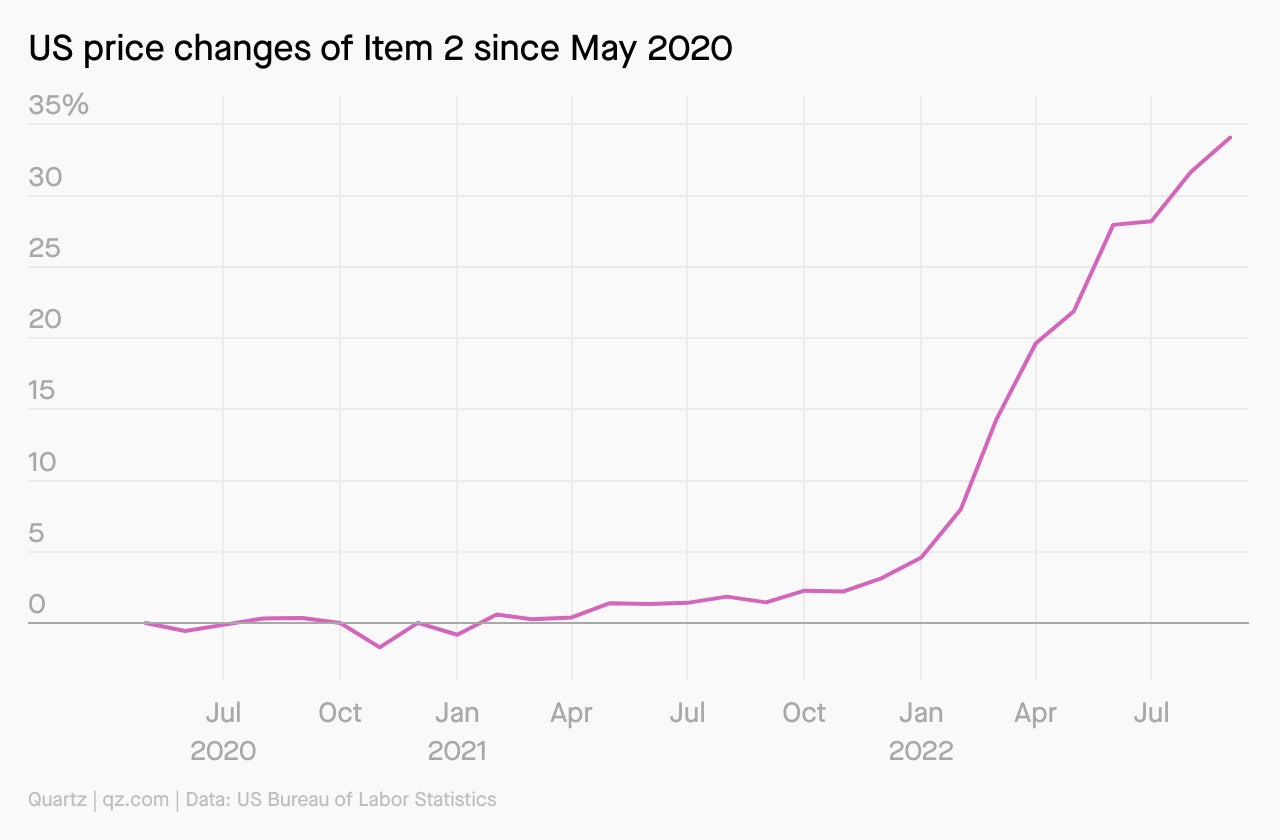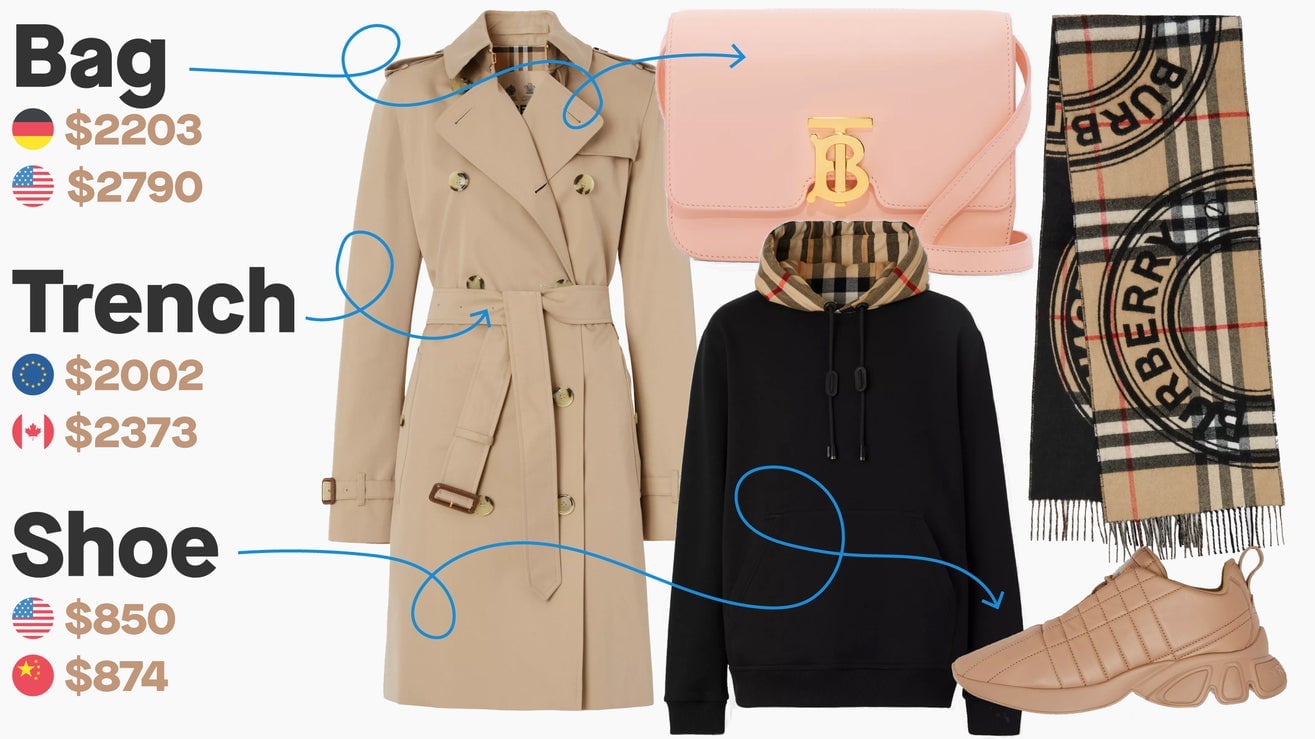🌎 FTX's bad week worsens
Plus: Inflation on the table

Good morning, Quartz readers!
Here’s what you need to know
Sequoia marked FTX a zero-dollar investment. The venture capital fund’s decision delivers another big blow to the embattled crypto exchange, just after rival Binance withdrew its rescue offer.
Meta announced it will cut over 11,000 jobs. Facebook’s parent company is slashing 13% of its staff amid low growth and falling ad revenue.
Adidas can reinvent Yeezy. The sneaker line might make a return after the Ye break up as the German company says it’s the sole owner of the IP and designs.
Abortion rights won the US midterms. The outcome of various ballot proposals reinforced Americans’ support for women’s right to choose, even in red states.
Hurricane Nicole made landfall in Florida. Officials shut down airports and theme parks, and issued evacuation orders to properties in danger zones, including Donald Trump’s Mar-a-Lago club.
The late Paul Allen’s art collection set a $1.5 billion auction record. Of all the pieces in the Microsoft co-founder’s possession, a Georges Seurat painting fetched the highest price at $149.2 million.
Carbon offsets are making a comeback at COP27. US climate envoy John Kerry announced a plan to create a new platform for carbon credit trading called the “Energy Transition Accelerator.”
Keep up with the latest news about humanity’s future by signing up for our limited email series, Need to Know: COP27.
What to watch for
As Thanksgiving day approaches on Nov. 24, Americans shopping for one of the most elaborate meals of the year will be feeling the impact of decades-high inflation.
The US consumer price index (CPI) soared 8.2% over the last year, and 0.4% in September, topping the 0.3% forecast by economists. But that report did have one bright spot—the prices of some goods are starting to calm the heck down.
As we wait for the Office for National Statistics’ release of October CPI today, we’re taking a look at how the price of five Thanksgiving staples has changed since 2020. Can you guess what item’s (or category of items’) price changes are reflected in this chart?

Hint: Of all the Thanksgiving staples we researched, the items depicted in this chart have witnessed the steepest increase in prices since the pandemic, due to disruptions in the availability of their base ingredients. Get hints, find out the answer, and tackle other mystery charts while you procrastinate on planning Thanksgiving Inflation Feast, if you celebrate.
Thanks for the sweet coat, US dollar!
The strong dollar is making luxury goods much cheaper in Europe than in China and even the US. While currencies are always fluctuating, the dollar’s steep rise is distorting retailer prices dramatically. Investors have been buying up greenbacks as reserves during volatile times, and the US Federal Reserve has kept raising interest rates to slow inflation. Year to date, the euro is down 11% vs. the dollar, while the British pound lost 16%.

Humans, not math, are what’s flummoxing brands. If they don’t raise prices in places like Europe, where goods have become unusually cheap, it could train tourist shoppers to always expect a discount. But with high inflation, passing on price increases to customers would be untenable as well.
Cutting prices in the US is not an option for luxury houses either because it could damage companies’ reputations with American customers. So, Europeans, enjoy the unintentional sale while it lasts.
The global economics behind America’s fentanyl problem
As opioids go, fentanyl is cheaper, easier to make and transport, and 30-50 times more powerful than heroin. And while the US struggles with its omnipresence—synthetic opioids were linked to more than 70,000 drug overdose deaths in the US in 2021—fentanyl is much less of an issue in the rest of the world.
Quartz’s Annalisa Merelli explores the economics of the fentanyl supply chain and explains why the law-enforcement approach to opioids has only strengthened their foothold.
✦ Love stories like these? Grab a Quartz membership for 50% off to help keep our content free and visible to all.
Surprising discoveries
A guy made himself eat a biblical number of rotisserie chickens. The “Philadelphia Chicken Man,” reportedly, did not enjoy consuming 40 birds 40 days in a row.
More creepy crawlies were found in the deep ocean. Among them is a gooey-looking eel and a ravioli-shaped, surprised-looking relative to the anglerfish.
Animal Crossing: New Horizons is now the #1 game sold in Japan. It’s sold over 10.45 million copies—Tom Nook would be proud.
France wants parking lots to soak up more sunshine. A solar panel covering will be mandatory for lots that can park 80 vehicles or more.
One of the oldest sentences known to humankind was written about head lice. A Canaanite comb from 17,000 BCE reads: “May this tusk root out the lice of the hair and the beard!”
Our best wishes for a productive day. Send any news, and comments—may this email root out the lice of the hair and the beard!—to [email protected]. Reader support makes Quartz available to all—become a member. Today’s Daily Brief was brought to you by Tiffany Ap, Ananya Bhattacharya, Sofia Lotto Persio, Julia Malleck, and Susan Howson.